Librarians select books, journals and materials for their collections, both electronic and print.
However, it is up to you to make sure that the information you are using is current, relevant and scholarly.
To evaluate the potential usefulness of an item, consider the following questions:
If the source is a book, scan the table of contents or use the index to see if there is enough on your topic. If it is a journal, magazine or newspaper article, first look at the title, then read the abstract (summary) if one is available. You should also consider the length of the article; articles shorter than two pages may not be appropriate for many assignments.
Feel free to compare your sources to others on the same topic, or check out the bibliographies or links that the source provides. If the coverage is superficial, opt for an alternative which has richer content.
Considering the publisher can help you decide whether a book, article or website is appropriate for scholarly work or not. For books, a university press publication usually is an indicator of a scholarly work. Some journals are published by professional associations or societies like the American Psychological Association or the American Chemical Society.
It can be a little more difficult to tell who the publisher of a website is. One helpful indicator is the website's domain. Look for .edu (education), .gov (government), .org (non-profit organization) instead of .com (commercial) when you are evaluating and documenting your source.
Is the purpose of your source to disseminate facts and figures, to report research, to provide in-depth analysis, or something else? Does it attempt to inform, persuade or entertain you? You need to understand why this information is being made available so that you will be more aware of any possible biases. While the author may certainly have a point of view, you will need to make sure that you distinguish between facts and opinions.
Good sources will usually provide background information and cite references in order to help you do this.
Some fields of study require more recent information than others, but all fields change over time. You should be aware of when your source was published and whether our understanding of the topic has changed in the meantime.
In the case of a website, it is more difficult to know the date of publication, but you can often find one if you look carefully. It is important to pay attention to this detail so that you know the site has not been abandoned.
The author's credentials (name, institutional affiliation) are sometimes listed at bottom of the article or the beginning of the book. Reputable authors of websites will also list their credentials. The authors you use should be experts in their particular field of expertise. They should have credentials, degrees, or licenses and be part of a bona fide, legitimate institution, which they represent.
Has your instructor mentioned this author? Have you seen the author's name cited in other sources or bibliographies? Respected authors are cited frequently by other scholars. Always note those names that appear in different sources.
A bibliography will tell you where the author got his or her information. A reputable author will use reputable, scholarly sources. This is also why you want to be careful to evaluate the sources that you are using! The bibliography can also point you to some additional resources on the same topic.
Peer review is a process specific to scholarly journals. When an article is published in one of these journals, it must first be read by other experts in the subject field. Such a review ensures reliability, authority, and general acceptance within the field of study. One way to find out if a journal is peer-reviewed is to check
Ulrichsweb is an easy to search source of detailed information on more than 300,000 periodicals (also called serials) of all types: academic and scholarly journals, e-journals, Peer-Reviewed titles, popular magazines, newspapers, newsletters, and more.
Catalogue Link: OneSearch.
Not all scholarly journals are peer-reviewed, but all peer-reviewed journals are scholarly. Your professor may require that you use peer-reviewed journals to make sure that you are using the highest-quality research.
For further information on distinguishing between popular and scholarly periodical sources, please see our guide.
